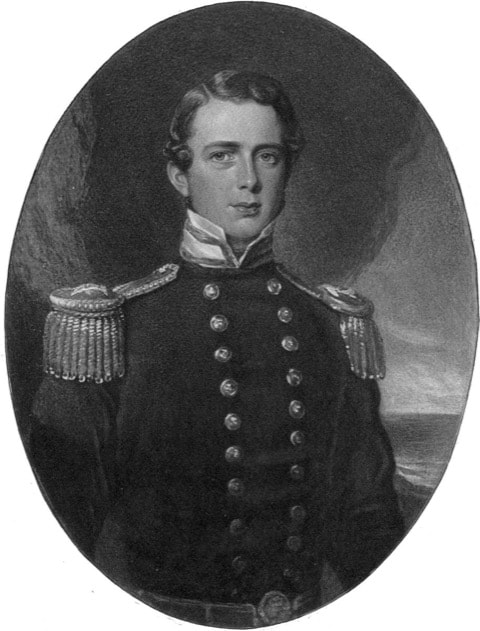
British General William Tryon led an attack on Phillipse Manor and Yonkers during the Revolutionary War
By Mary Hoar, City of Yonkers Historian, President Emerita Yonkers Historical Society, recipient of the 2004 Key to History, Member of the Yonkers Landmarks Preservation Board, and President Untermyer Performing Arts Council
Monday, November 13th:
1893: The Westchester County Board of Supervisions finally allowed Yonkers’ five Supervisors to take their seats in accordance with the decision of the Court of Appeals.
The State Legislature had passed a law giving Yonkers one Supervisor for each ward as Yonkers had one-third of the county population and paid one-third of the county tax. The Supervisors attacked the legislation as unconstitutional and refused to seat the Yonkers men; instead, they took the dispute to the courts. Ruling after ruling was in favor of Yonkers. Eighteen months after the original election, the Court of Appeals affirmed the law’s constitutionality. Alanson Prime, T. J. Percival, P. J. Cunniff, Jeremiah Clancey and William McPherson finally were seated in their rightful seats.
Tuesday, November 14th:
1934: Alderman Edward Winn was the first Common Council member to introduce the resolution opposing the latest attempt to annex Yonkers to New York City.
1938: Bill Schlobohm, National Long Distance Running Committee member, visited the National Press Club in Washington. He wanted to find out what publicity was given to his favorite event, the Yonkers Marathon. Run by the Chippewa Club, our marathon was a highly regarded national championship event! He was disappointed to discover, although stories about our race were printed in most major daily newspapers, not one paper in Boston printed the story. Schlobohm figured Boston did not want the competition to their Boston Marathon from the race run here in the Terrace City!
Wednesday, November 15th:
1933: St. Louis Baseball Team manager Frank Frisch addressed the Yonkers Baseball League dinner, held in honor of championship Irwin Post team. The Post received the coveted Spaulding Trophy; each team member received a small silver baseball. The Kalkhof trophy for the league’s leading batter was presented to the Irwins’ Babe Young.
1945: Riverdale Avenue’s Brigadier General Frederick M. Hopkins, Jr., Commander of Iwo Jima, shared some Yonkers memories with The Yonkers Herald Statesman from his time studying at School Three and Yonkers High School to growing up in Yonkers. He had spent a good deal of time at both the Park Hill Inn and Shanley’s with a close friend, “Hap” Haviland. He was pleasantly surprised to meet Hap when he arrived in Iwo; Hap was there with the Red Cross. The pair hadn’t seen each other in years, so renewed their boyhood friendship. Hopkins also reported he oversaw 30,000 servicemen, all homesick, lonely, and anxious to get home.
Thursday, November 16th:
1919: Six maple trees were planted around St. Denis’ Church yard and dedicated to the six men of the parish killed in the World War: James Pryor, Charles Gahan, Harold Flood, Corporal Gerald McMurray, John McBride and Lieutenant Thomas Brogan. After pastor Reverend Richard Hughes blessed and dedicated the trees, those gathered were addressed by 107th Regiment 27th Division Chaplain Father Peter Hoey, Reverend Owen Hill of Fordham College, and City Judge William Bleakley. Music was provided by the War Camp Community Service Singers.
1953: Yonkers resident Ambrose Salmini, waging a private war on Communism, announced the winner of his competition for West Germans to create a symbol of hope for all the “people enslaved by Communists. The artists’ task was to convert the hammer and sickle into a cross. Twenty per cent of the entrants came from the Soviet zone of Germany but used a West German return address; they also asked their name not be used. Winner HJS received $1800 from Salmini.
Friday, November 17th:
1918: Civil War veterans Orlando Nichols and George Anderson told members of McClellan Camp, USWV (United Spanish War Veterans), the World War was no worse than the Civil War. The pair believed prisoners in the European
war received better treatment than the Confederate and Union soldiers did during the War Between the States.
1953: The Yonkers Chamber of Commerce honored Yonkers native Howard Brinton, President of Phelps Dodge Copper Products Corporation at its 60th annual dinner. Phelps Dodge was the parent company of Yonkers’ Habirshaw Cable and Wire Corporation. Toastmaster was US District Court Referee Arthur J. Doran, a board member with Brinton on the St. Joseph’s Hospital Board of Trustees.
Saturday, November 18th:
1777: British General Tryon sent Hessians troops to pillage and burn homes in Philipse Manor. They allegedly stripped women and children of clothing, then turned them out into the cold. Old men and boys were led back to the enemy lines wearing very little, but the halter the Hessians had put around their necks to lead them. Patriot newspapers condemned Tryon for making war on women and children.
1943: Chittenden Avenue resident Lt. Colonel John Hayward was pictured in American Magazine at the controls of a Nazi Messerschmitt 109-F. Hayward, the US Army’s expert on enemy aircraft, was assigned to Wright Field in Ohio; his days were spent examining enemy parts and planes to find out how the planes work. A World War I ace, Hayward put a rebuilt Messerschmitt through tests in the air and on the ground, and then smashed it as part of the research.
Sunday, November 19th:
1942: The volunteer “Flying Corps” of the Yonkers War Saving Staff tripled its sales of the previous week by selling war bonds and stamps at the gates of the Otis Elevator Company buildings. They completely sold out everything they had!
1942: City Manager William Walsh ordered all city cars be used only for public business; he wanted to end “sending a car to call for the boss,” or “giving the girls a lift” to end city employees traveling to and from work at taxpayers’ expense.
Questions or comments? Email YonkersHistory1646@gmail.com.For information on the Yonkers Historical Society, Sherwood House and upcoming events, please visit our website www.yonkershistoricalsociety.org, call 914-961-8940 or email info@yonkershistoricalsociety.org.





